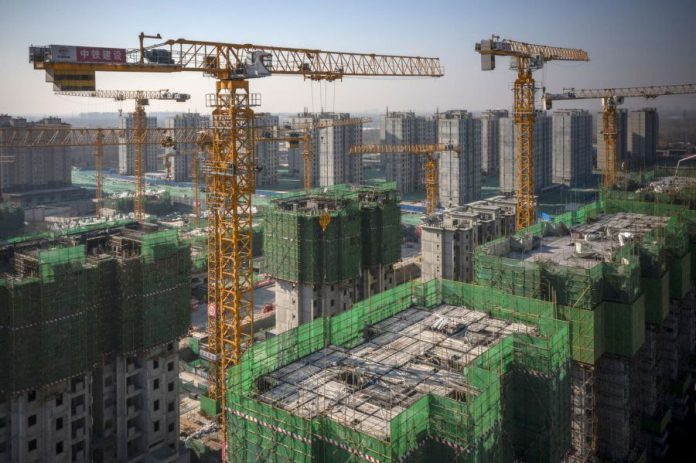The slump in China’s housing construction will continue in 2024, dragging down economic growth and suggesting that government efforts to stabilise the sector haven’t been enough to reverse the downturn.
That’s the consensus from 10 investment banks and securities brokerages, including Goldman Sachs Group Inc, Morgan Stanley and UBS Group AG.
If they’re right, that leaves China on track to post three straight years of contractions in property construction, a record streak. The country’s main measure of real estate investment fell 8% on year in the first 11 months of 2023. For all of last year, the measure dropped 8.4%.
The outlook signals the downturn in the property market is far from over, despite the government’s rollout of measures mostly aimed at stoking demand for homes. The prolonged slump means the sector’s role as a driver of demand for goods and services has shrunk. Real estate-related demand accounts for about 20% of gross domestic product (GDP) now, down from 24% in 2018, Bloomberg Economics estimates.
Goldman economists led by Hui Shan have one of the most bearish forecasts, expecting a “double digit” contraction in real estate fixed-asset investment next year. The ongoing property slump will reduce real GDP growth by one percentage point, they added.
Other forecasts are less gloomy. Morgan Stanley sees the gauge dropping 7%, while UBS expects a 5% decline. Chinese economists are bearish, too, with China Merchants Bank International expecting real estate investment to fall 7%.
The key reason for pessimism is a sharp decline in newly started real estate projects in 2023, according to Ming Ming of Citic Securities Co Ltd and other economists. That suggests the area of completed projects has room to fall.
Another reason is the decline in real estate sales, which leaves developers with less incentive to start construction. Both Goldman and UBS see real estate sales dropping 5% next year.
The property downturn has wider reaching effects. Given the large size of the sector, falling construction activity is a major cause of weak domestic demand, which in turn is one of the main reasons China has seen deflation this year. Source: Bloomberg






















